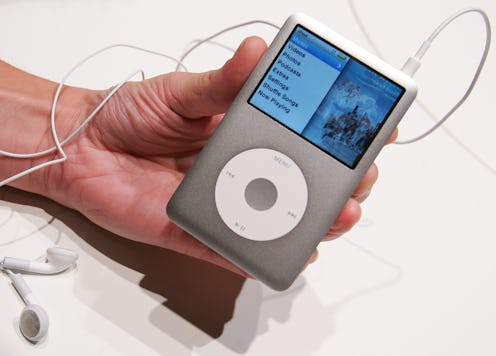News
Apple Deleted Your Music, But Forgot To Tell You
Is tech giant Apple a bad seed? A new class-action antitrust lawsuit has laid bare some devious behavior from the company: Apple deleted songs off iPods from rival music service providers. In other words, if you didn't download it from iTunes, it's going to be booted from your iPod. If prosecutors can prove Apple deleted songs in the hopes of killing the competition, then Apple would be in major breach of antitrust laws and could pay a hefty price in damages. In its defense, Apple isn't denying the move — but claims its motive was security.
Attorneys for the plaintiffs presented the case to jurors on Wednesday, describing how Apple routinely deleted songs off iPods that were purchased from outside providers between 2007 and 2009. Consumers were not notified or given a choice in the deletion. When iPod owners who had downloaded music from a rival service and tried to sync their device to their iTunes library, an error message would pop up telling the user to restore their factory settings. Once they restored the settings, the music downloaded from the outside service would be wiped.
Attorney Patrick Coughlin, who is representing the consumers, told jurors in U.S. District Court in Oakland, California, that Apple "decided to give [users] the worst possible experience" and then deliberately instructed the system "not to tell users the problem."
Internal Connivance?
Prosecuting attorneys are claiming that Apple had started an internal plan to snuff out the competition after learning that a rival company was going to introduce a service that would allow users to download songs from anywhere and play them on their iPods. As a response, Apple updated its iPod and iTunes software and became a closed system that essentially rejected any music not purchased from iTunes.
As evidence, the attorneys presented an email from former Apple CEO Steve Jobs that was sent in 2005 after discovering the rival service's plans. Jobs wrote in the email, "We may need to change things here." Later in the trial, the jury will also view a video testimony from Jobs, filmed six months before his death.
If Apple is found guilty of breaking antitrust laws, the company could pay $1 billion in damages.
Just Security Measures
As for Apple's defense, the company is claiming the deletions were merely security measures made to protect its software. Apple's security director, Augustin Farrugia, told the court that the company wiped iPods of music from outside providers in order to protect consumers from hackers and viruses. And what about that error message that didn't warn users of the deletion? Farrugia said that the message was purposely vague because "we don't need to give users too much information, we don't want to confuse users."
Farrugia mentioned the hacker "DVD Jon" and the digital rights management removal tool Requiem, both of which made Apple "very paranoid" about iTunes. "Someone is breaking into our house," Jobs wrote in another email presented to the jury.
Further Charges
The case, which has been going on for a decade, also includes charges of inflation. Later in the trial, a Stanford economist will testify in court that Apple inflated the price of its iPods by nearly $350 million, which is the amount in damages that the company will have to pay if they are cleared of the antitrust charges.
Images: Getty Images (3)
